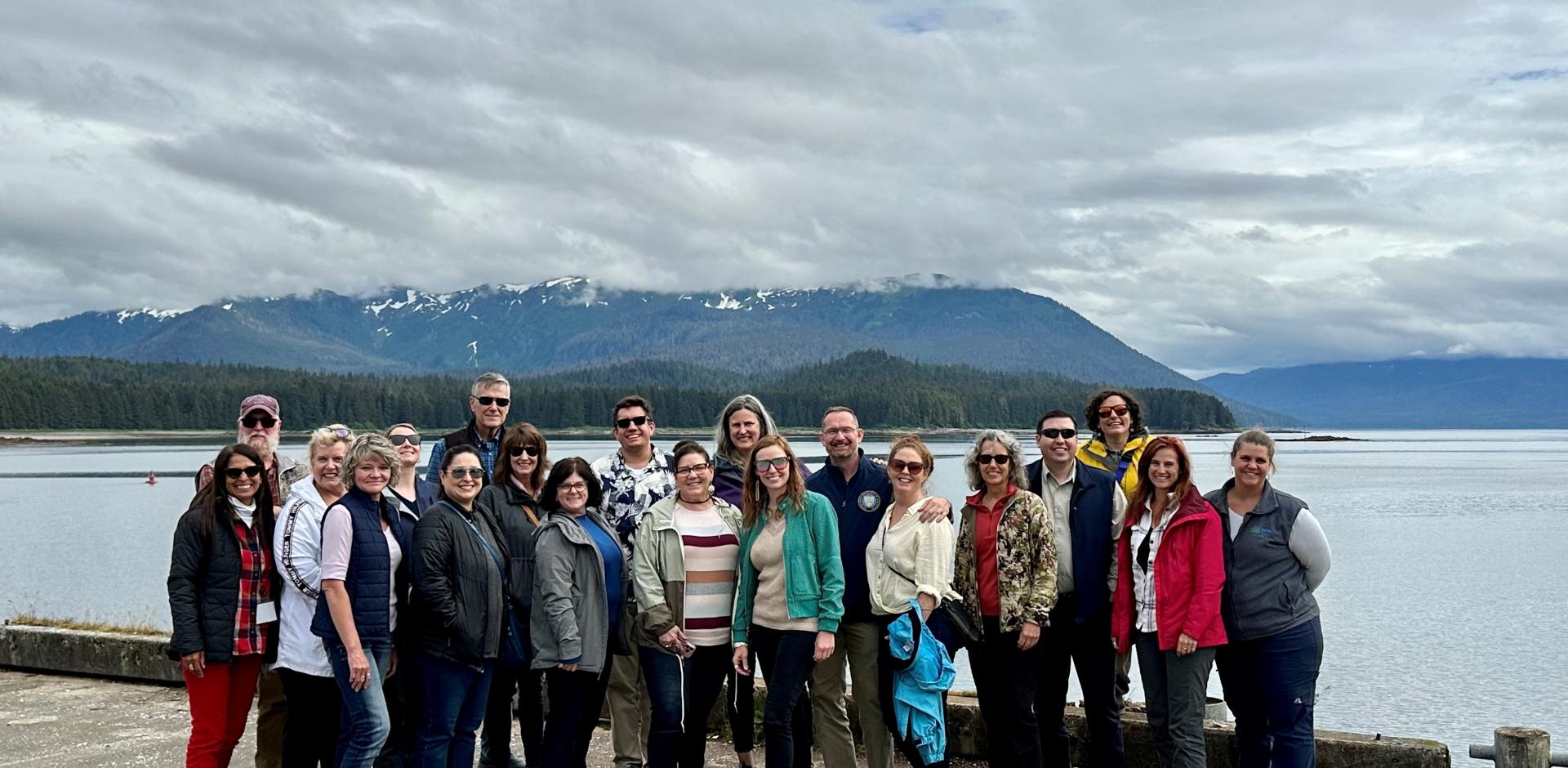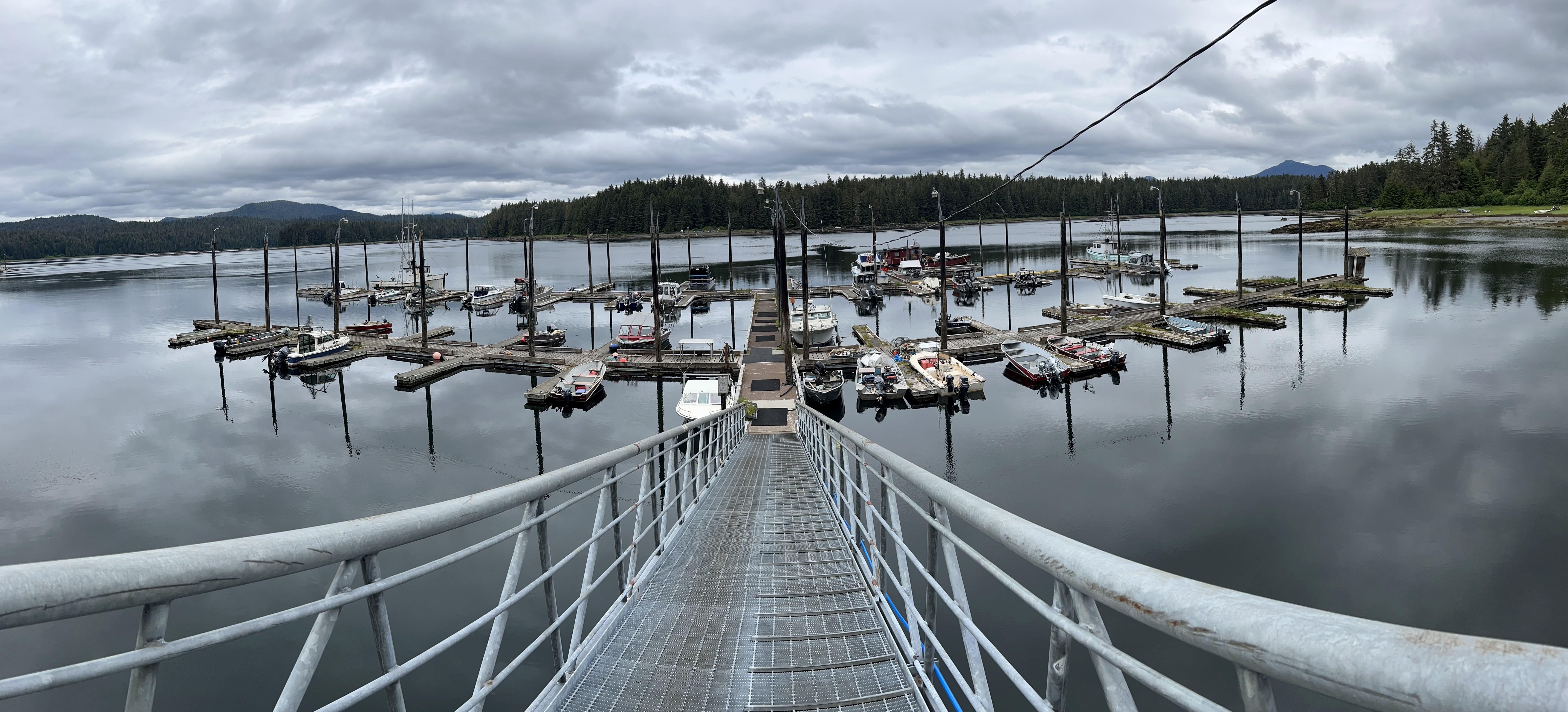
The City of Angoon, the Angoon Community Association, and the village corporation Kootznoowoo Inc. hosted leaders from RPN, Office of Tribal Relations, and 12 state directors in southeast Alaska, June 27, to share some of the opportunities and challenges of supporting projects in villages that are not on the road system.
Rural Partners Network was launched in April 2022 to change the way the federal government works with and listens to rural people. RPN’s resounding efforts to bring federal, state, and local partners together to leverage combined resources are helping rural communities thrive. On June 27, local leaders and representatives from USDA and RPN visited Southeast Alaska to do just that.
“RPN will help people navigate federal programs and give feedback to program planners about the experience of applicants,” said Jennifer Rachels, Supervisory Community Liaison for RPN Alaska. “Through our relationship building, RPN will support the development of plans and funding for the big dreams that many small towns have.”
For Angoon, a village in Southeast Alaska of about 350 people almost all of which are Tlingit Alaska Natives, improved infrastructure is a high priority. During the visit, lifelong residents of Angoon like Charles Duncan explained ongoing challenges the community is facing. Angoon is the only permanent settlement on Admiralty Island which has long been the home of the Kootznoowoo Tlingit Tribe (Kootznoowoo means fortress of bears). Admiralty Island is home to the highest density of brown bears in North America. An estimated 1,600 brown bears inhabit the island, outnumbering Admiralty's human residents nearly three to one.

The small boat harbor in Angoon, Alaska, needs more than $7 million of improvements, including a boat launch, replacement beams, and expansion. The City of Angoon, the Angoon Community Association, and the village corporation Kootznoowoo Inc. hosted leaders from USDA’s Rural Partners Network, Office of Tribal Relations, and 12 state directors in southeast Alaska, June 27, to share some of the opportunities and challenges of supporting projects in villages that are not on the road system.
Angoon is accessible only by float plane or boat and its facilities include a deep draft dock, a small boat harbor, and state ferry terminal. In the summer, freight arrives by barge and ferry. During the winter, there is no ferry service and shipping goods cost more than a dollar per pound.
Partners from RPN, USDA’s Office of Tribal Relations, and USDA Rural Development learned about the small boat harbor that needs more than $7 million of improvements, including a boat launch, replacement beams, and expansion. They began to understand the importance of the $10 million investment needed for the barge port to allow for more goods to be shipped in and out, which will eventually support tourism. Long-time residents also shared the reality of paying more than $.60 per kilowatt-hour for electricity and the need to boil drinking water because large-scale chemical treatment cannot keep up with the pace bacteria growing.
But through a day of discussions, focused listening sessions, and strategic discussions, the federal partners left with a renewed resolve to advocate for Alaska Natives and Indigenous people and increase access to federal funding for remotely located villages. Through these connections with RPN, local leaders are providing specific support to the people of Angoon as they work to achieve their goals.

